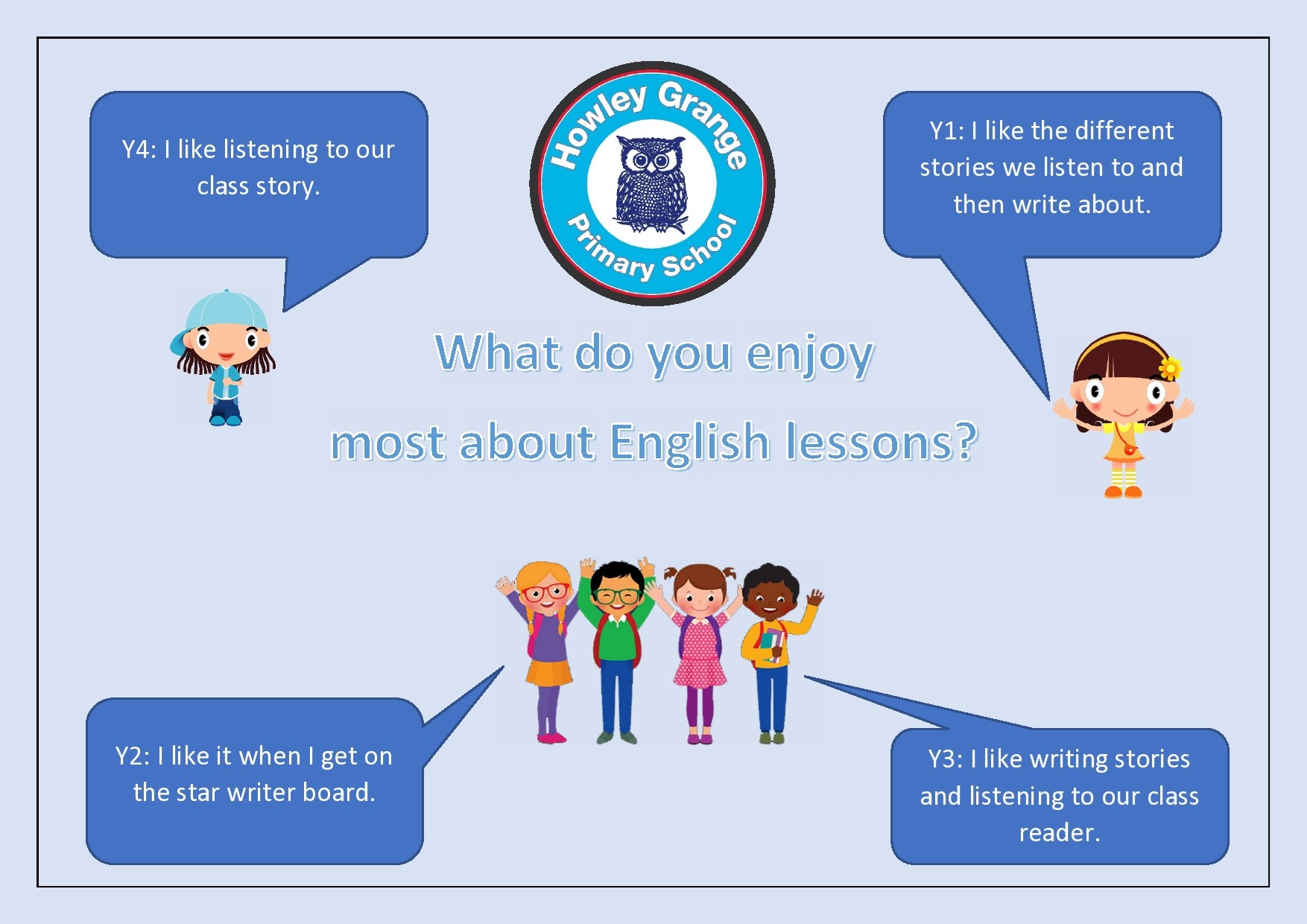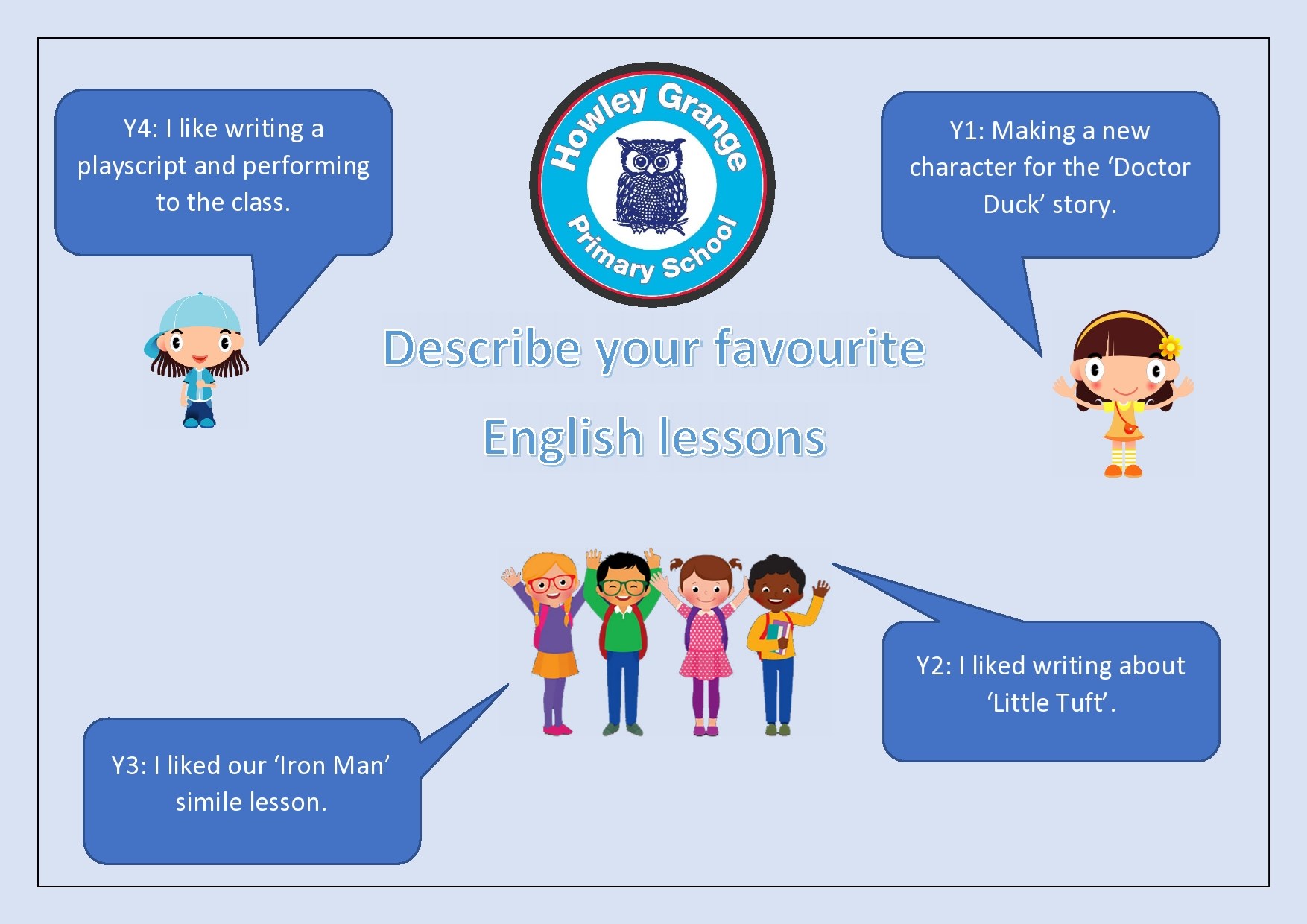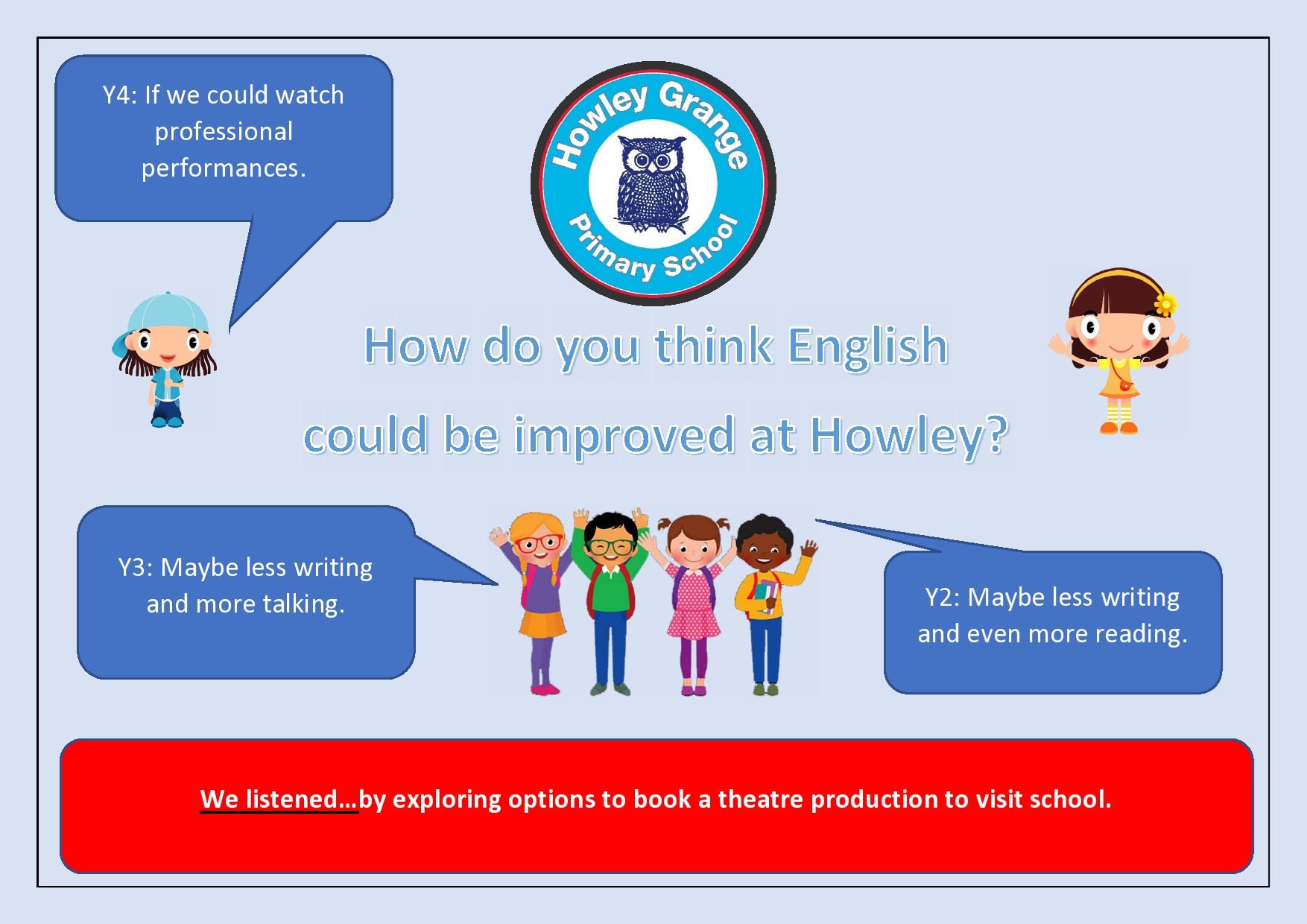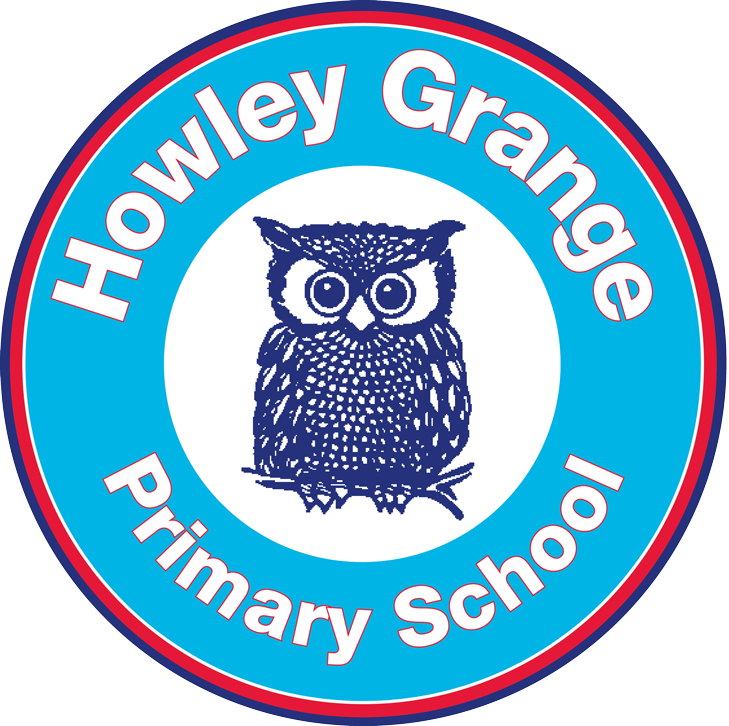English
It is our intention that as our pupils journey through the school, our English curriculum enables each child to experience success, challenge and enjoyment in reading, writing and discussion through high-quality teaching and creative learning activities.
We are determined that every pupil will read easily, fluently and enthusiastically for both pleasure and information, as we believe that reading is the cornerstone of their learning. Through developing a range of reading strategies, our pupils will explore and deepen their understanding of a wide range of genres, authors and styles and be able to voice their opinions and thoughts about the texts read.
We want every child to write independently with confidence and clarity for a variety of purposes and audiences across the curriculum, whilst developing their own individual flair and style. This will involve writing with grammatical accuracy, applying spelling knowledge, patterns and rules correctly plus using neat handwriting. The link with reading is fundamental in exposing our pupils to a wide range of engaging, high-quality texts, from which they will fuel their imagination and acquire new vocabulary alongside knowledge about themselves and the world in which they live. We also aim to develop a culture where children take pride in their writing and can re-read, edit and improve their work as it progresses.
We believe that spoken language is essential to the development of reading and writing and is intertwined within school activities. We encourage our pupils to share their own voices alongside listening to and respecting those of others.
We intend to develop positive attitudes to reading and writing across all subjects and so foster a lifelong love of both whilst recognising that every child has their own starting point for learning from which they are expected to make progress. At Howley Grange we also recognise the importance of parents and carers in supporting their children to learn and strive to encourage a successful home-school partnership to facilitate this.
Finally, we recognise the upmost importance of reading, writing and speaking and listening as key life-skills and crucial in achieving our overall curriculum aim in readiness for each child's continuing journey in education and beyond.
Writing
At Howley Grange we strive for pupils to write clearly, accurately and coherently, adapting their language and style in (and for) a range of contexts, purposes and audiences. They will select vocabulary and grammatical structures that reflect what the writing requires.
The objectives of The National Curriculum are followed to ensure that the skills learnt in spelling, punctuation and grammar are embedded and transferred into writing. Lessons are planned so that skills are taught, developed and revisited in a sequential way which promotes learning and retention of knowledge and skills. The overviews below give our planned progression, however this is always adapted to suit the cohort.
Whole School Writing Progression
Genre Progression at Howley
Poetry Progression at Howley
Individual Reading
In EYFS and KS1, pupils read books which match their individual phonic knowledge from our new Bug Club Phonics scheme. If needed, these are supplemented by other phonetically decodable books available from Oxford Reading Tree (Floppy Phonics). As children’s fluency and confidence in reading develops, they move to Accelerated Reader. EYFS and KS1 children read individually to an adult at least once a week.
Accelerated Reader is used once children move from Phonics Bug books. The books are colour banded according to the Book Level and children are allocated a Book Level to read based on STAR Reading assessment results, teacher assessment and quiz results to ensure continued challenge and widening of each child's reading range. Once a child has read a book, they take an online quiz before choosing the next book.
For more information click on the parent guide below.
Click the link below to access the Accelerated Reader website.
All children are encouraged to read at school and at home and have a reading diary to use as a record of their reading. Pupils and parents are encouraged to write comments about the books read, so facilitating the link between home and school.
Click on the link below to access the 'book finder' search engine for Accelerated Reader. This allows you to find the book level of individual books your child may choose to read an home.
https://www.arbookfind.co.uk/UserType.aspx?RedirectURL=%2fdefault.aspx
For more information on reading at Howley Grange please click on the PDF below to view slides from our parent workshop.
Across the school, VIPERS is used to improve the comprehension of a text in specific reading lessons or when a book is being read daily, allowing staff and children to focus on specific question types linked to the six reading domains.
Pupils are also given opportunities to apply and develop their reading skills across all areas of the curriculum in order to understand the purpose and potential that all reading
brings to learning.
For more information on VIPERS please click the links below.
What parents can do to help with reading...
- Encourage your child to read at home. They must be reading for at least 20 minutes a day. We set aside 10 minutes in class per day for AR.
- Talk to your child about what they are reading. Consider using VIPERS style questions to do so
- Use www.arbookfind.co.uk to search for books to read at home alongside their school book.
- It is okay for your child to read books outside of their ZPD as reading for pleasure, but these may not have AR quizzes or develop their reading ability if the books are too easy or too difficult.
- Develop a reading culture at home. Does your child see you read?
- Consider 'Reading Time' away from screens.
Reading Curriculum Progression
Phonics
In Reception (Early Years Foundation Stage) and Key Stage 1, phonics is underpinned by the scheme: Bug Club Phonics. Bug Club Phonics is designed to be used as a whole-class systematic, synthetic phonics programme. In Reception, Bug Club Phonics teaches a new grapheme (letter) and related phoneme (sound) in a daily lesson, backed up by a revision of past learning (Remember and Connect). This means that the basic 40+ phonemes are acquired and early reading skills develop quickly. As children move to Year 1, explicit phonics teaching takes place a minimum of 3x per week. Each phonics lesson follows the following structure: Remember and Connect, Explain, Example, Practice and Apply. Frequent informal assessment takes place to ensure that children have retained what they have been taught and are reading the correct reading material. If gaps are identified, intervention strategies will be deployed to close them as quickly as possible.
For further information on Bug Club Phonics, with a particular focus on progression, please click the links below.
From Year 3 onwards, the Rising Star spelling scheme is used on a weekly basis to teach whole class spellings. Many of these words would be included in a class's weekly spelling list that would be tested the following week.
Recommended Reads
Handwriting and Presentation
We use the Kinetic Letters program to teach our younger children the foundations in order to build towards a joined and fluent style of handwriting. Kinetic Letters revolves around four strands of learning:
- Making bodies stronger/ motor and spatial preparation
- Learning the letters/using dynamic movement for learning the letter shapes
- Holding the pencil/optimal pencil hold for speed and legibility
- Developing flow and fluency/speed and stamina developed.
Older children are then encouraged to continue to use a joined, fluent style of handwriting.
Book Newsletter - No Shelf Control 2023 - 2024
Pupil Voice






